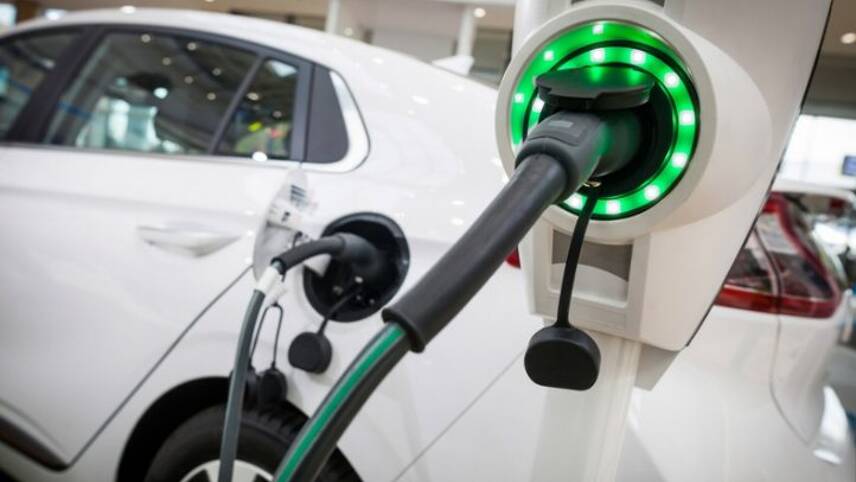Register for free and continue reading
Join our growing army of changemakers and get unlimited access to our premium content

The report concludes that getting the same amount of mobility from gasoline as from new renewables in tandem with EVs over the next 25 years would cost 6.2 to seven times more
BNP Paribas Asset Management said the economics of petrol and diesel-powered vehicles is now in “relentless and irreversible decline, with far-reaching implications for both policymakers and the oil majors.”
The analysis focused on the amount of energy that can be produced for each unit of capital invested.
Assuming an oil price of $60 per barrel, the report said wind and solar installations powering electric vehicles (EVs) can produce six to seven times as much as “useful energy at the wheels” when compared to petrol. They can also produce three to four times as useful energy as diesel.
For diesel to remain cost-competitive in the transport sector, the long-term breakeven price would need to decline to $17-19 per barrel of oil. For petrol to remain competitive, the price would need to fall to just $9-10 per barrel.
The report said the findings should be “a flashing red light on the oil industry’s dashboard”, adding: “We think the oil majors should be accelerating the deployment of capital into renewable-energy and energy-storage technologies and/or reducing re-investment risk via higher dividend payouts to shareholders.”
“The clear conclusion of our analysis is that if we were building out the global energy system from scratch today, economics alone would dictate that at a minimum the road-transportation infrastructure would be built up around EVs powered by wind- and solar-generated electricity,” it stated.
“And that is before we factor in the other advantages of renewables and EVs over oil as a road-transportation fuel; namely the climate-change and clean-air benefits, the public-health benefits that flow from this, the fact that electricity is much easier to transport than oil, and the fact that the price of electricity generated from wind and solar is low and stable over the long term whereas the price of oil is notoriously volatile.”
Writing in the Financial Times, Mark Lewis, global head of sustainability research at BNP Paribas Asset Management, said: “The oil industry today enjoys massive scale advantages over wind and solar. But this advantage is now one only of incumbency and time-limited.
“The simple truth is that the oil industry has never before faced the kind of threat that renewable electricity and EVs pose to its business model. For the first time, there is a competing energy source with a short-run marginal cost of zero, that is much cleaner environmentally and will be able to replace up to 40 per cent of global oil demand once it has the necessary scale.
“The economics of energy are now on the side of the angels.”
Tom Grimwood
This article first appeared on edie’s sister title, Utility Week


Perhaps Mr Grimwood would like to revise this article in the light of the power failure last Friday. Largely caused by the disconnection of Hornsea 1. Why? No-one has said, but bear in mind that it is brand new, the biggest in the North Sea, that it consists of dozens of separate wind turbines – not one plant that might have a problem. So the reason? Probably too much wind…Could be damaged if it is too windy, so we shut them down – despite a strike price of 158.85/MWhr, guaranteed and inflation proofed for the next 15 years. Just the sort of reliable despatchable energy source we need for the 32 million EVs Mr Grimwood wants to see on our roads. Let’s keep Aberthaw open, burning (Russian) coal but one of the few able to use a black start – when the grid fails to provide electricity…We need proper engineers advising Grant Shapps, not idealistic greens who don’t do maths!
According to National Grid it wasn’t the technology (ie renewable energy) that caused the power cut but the size of the power plants involved. Mr Pollock’s comment conveniently neglects to mention that a gas fired power plant went down also, just before Hornsea did.
https://news.sky.com/story/national-grid-rules-out-wind-power-as-cause-of-power-cut-11785089